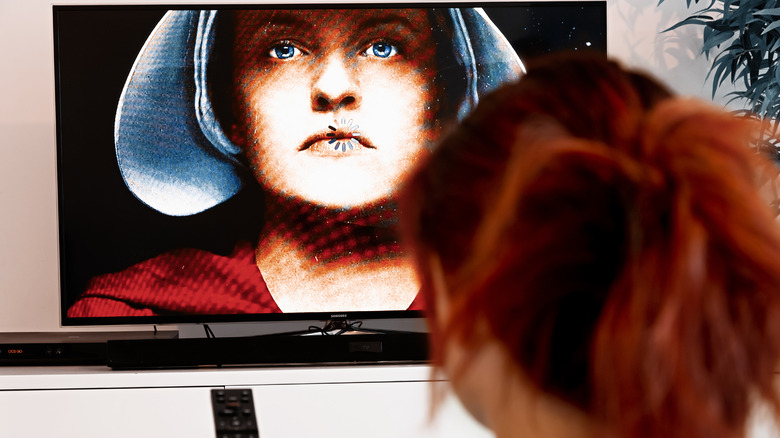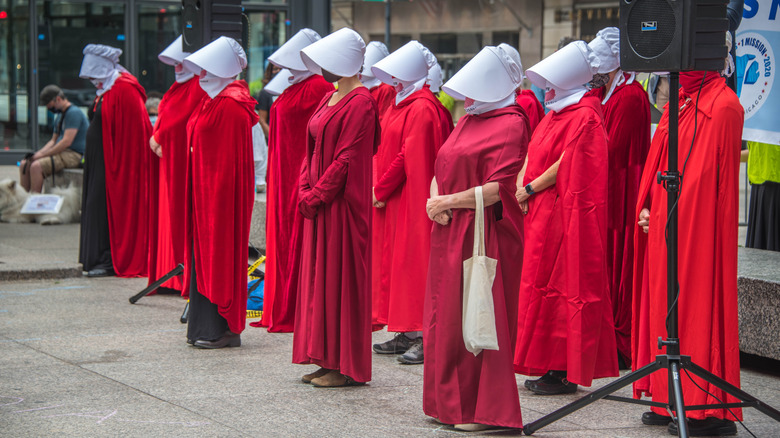Could The Handmaid's Tale Ever Actually Happen?
In 2017, the Hulu series "The Handmaid's Tale," based on the 1985 Margaret Atwood novel of the same name, became a sensation. Though there are differences between the streaming series and the source material, both iterations of the story share the same basic premise. Specifically, the United States of America has been taken over by Christian extremists, and women have zero rights, including not even being allowed to learn to read. Further, some of the women in the story live their lives in what amounts to sexual slavery, with brutal punishments for failing to live according to the strict rules that govern them.
And while the dystopian novel and the streaming series based on it are works of fiction, by some interpretations there may be a kernel of truth to the narrative's concept. Indeed, as Wired reported, in 2019 women began showing up to protests dressed in the garb the women in the book and movie were forced to wear. And at least one analyst believes that "The Handmaid's Tale," or something like it, could one day become a reality.
There are parallels between the story and reality
In An Injustice Magazine, a writer who identifies himself only as "Mike B." points to flashback sequences in the original novel as a cautionary tale for life in the 21st century. He notes that in the years before the takeover of the United States by religious extremists, there were signs that women's rights were in danger, but that they were ignored. For example, in the book, a political figure Serena Joy openly advocates for the rights of women to be taken away, and while the main character, Offred, is alarmed, her husband, Luke, laughs her off. He then notes that a recently appointed Supreme Court justice is staunchly anti-abortion, in effect a real-life Serena Joy, in that she's a woman who advocates for women's rights being taken away.
Mike B. paints Luke as something of a metaphor for privilege and complacency. He then points to how, though gay marriage, abortion, and other rights remain in place, there was a time in the mid-to-late 2010s when those rights were seriously threatened. Privileged people, particularly those who were wealthy, white, and heterosexual, failed to take those threats seriously.
As such, he says, "The Handmaid's Tale" is a cautionary tale about complacency. "'The Handmaid's Tale' warns against the folly of believing that all of this is here to stay," he notes.

